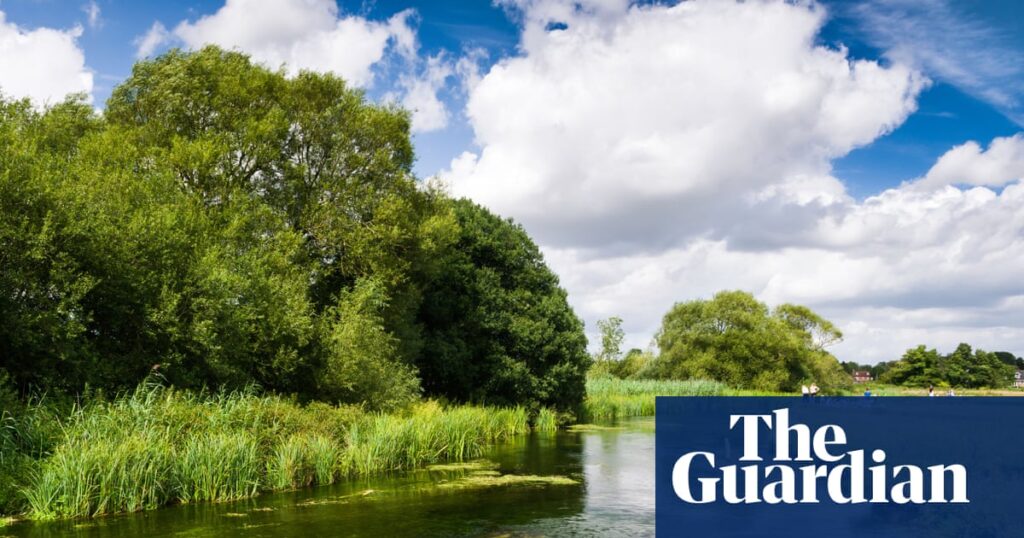The right of a famous chalk stream, the Test in Hampshire, to flow freely and unpolluted has been officially recognised by politicians.
Councillors on Test Valley borough council voted unanimously to acknowledge “the intrinsic rights” of the rivers within its boundaries, including the Test, which is renowned for its trout and fly fishing.
It means councillors and officials will have to keep the Test front and centre when making decisions on planning, land use, water management and biodiversity.
Members of the Tory-led council promised to support efforts by citizens to monitor the Test and ask the UK government to publish an annual “state of the rivers” report to track progress in protecting river ecosystems.
Geoff Cooper, a Liberal Democrat councillor who put forward the motion to recognise the Test’s rights, said rivers were one of the country’s greatest assets.
He said: “It is our duty to protect those for future generations to come. It is not just sewage that endangers our rivers, there is the impact of road runoff, the impact of agriculture, the impact of planning and development. It is not just about pointing your fingers at the water company, it is all the factors that endanger our rivers.”
There are only about 200 chalk streams in the world. The 39-mile Test is important for Atlantic salmon, while birds such as kingfishers, marsh harriers and little grebes live on and around it.
Parts of the stream, which flows from chalk downs into Southampton Water, are ideal for watercress growers. The Test featured in Richard Adams’ novel Watership Down, in which some of the rabbits flee down the stream on a punt.
Cooper said biodiversity in and around the stream had declined dramatically over the last few decades. When he used to drive alongside the riverbanks a quarter of a century ago, his car windscreen would be covered by insects, he said. On the way to the meeting at which the rights of the Test were ratified there were hardly any, though it is high summer. He described this as a red flag.
The motion was seconded by Janet Burnage, another Lib Dem, who said: “We live in one of the most beautiful areas of the English countryside. We should and must be proud of this. Without the River Test, its tributaries and all the other rivers that flow through Test Valley, we would not have the wonderful bounty of nature around us.”
Other local authorities around the world have begun to afford rivers official rights and the supporters of the Test hope the new initiative will inspire even more.
The Earth Law Center, a US charity, championed the idea of giving nature a voice in the legal system, allowing it to defend its rights just as people can.
In 2017, New Zealand granted legal personhood to the Whanganui River in the North Island. This year Lewes district council in East Sussex produced a rights of river charter to help protect the River Ouse.
The Test motion says the river should have “the right to flow – unimpeded, seasonal, and natural; the right to perform essential functions within the ecosystem; the right to be free from pollution and contamination.”
Ali Morse, water policy manager at the Wildlife Trusts, said rights of rivers motions could help ensure council decisions, particularly around planning, are made with the health of rivers in mind.
Morse said: “They can protect them from the cumulative harms of additional water extraction, wastewater discharges, urban runoff and other pressures. Home to many significant species, this focus can also help to reverse the tide for declining wildlife in freshwaters.
“For the River Test and other precious chalk streams across the country, for example, we hope the threat of Atlantic Salmon extinction can be avoided once the right safeguards are in place.
“The rights of rivers work is seeing councils like Test Valley getting ahead of the curve.”


